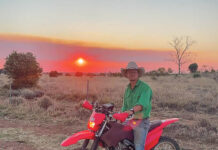EPA wants its millions returned
The Office of Inspector General at the Environmental Protection Agency (EPA) has recommended EPA seek to recover nearly $25.
Farm Credit System wants favors
Some things are more reliable than even death and taxes. Take the Farm Credit System for example. Since it's farm bill-writing time again, the giant, government-sanctioned, cooperative ag lender is again asking Congress for favors to boost itself in the farm lending marketplace.
Hope you’re hungry for a harvest
On the southern Illinois farm of my youth, the beginning of summer marked the kick-off of a season of great food.
Sir Isaac Newton meets Congress
Newton's Third Law of Motion, "For every action there is an equal and opposite reaction," has direct application to the physics of farm bills.
Common ground: Europe is changing
If you believe the 2007 U.S. Farm Bill process is complicated - 2 million farmers, 435 representatives, 100 senators, innumerable ideas - it's a simple souffl
Mergers killing healthy competition
When University of Wisconsin law professor Peter Carstensen read the U.S. Department of Justice May 4 press release announcing its blessing on pork giant Smithfield, Inc.
Meat that actually looks like meat
During a pork roast dinner with my parents on the farm 15 or so years ago, my father issued one of only two edicts I recall him ever uttering.
Origin labeling being resurrected
If you could save, say, $1,000 on the purchase of a new car or truck because it did not have a shatterproof windshield and side glass, would you cut the deal? Of course not; the safety of you and your family is priceless.
Fight is on for piece of conservation pie
Farm bill fights usually center on the legislation's commodity title, the section that explains who, when and how farmers can tap the federal treasury should crop prices fall.
Food safety laws are counterintuitive
In the upside down world of the U.S. Department of Agriculture's current leaders, sound science is what they say it is and food safety seems to be what is best for agribusiness.















